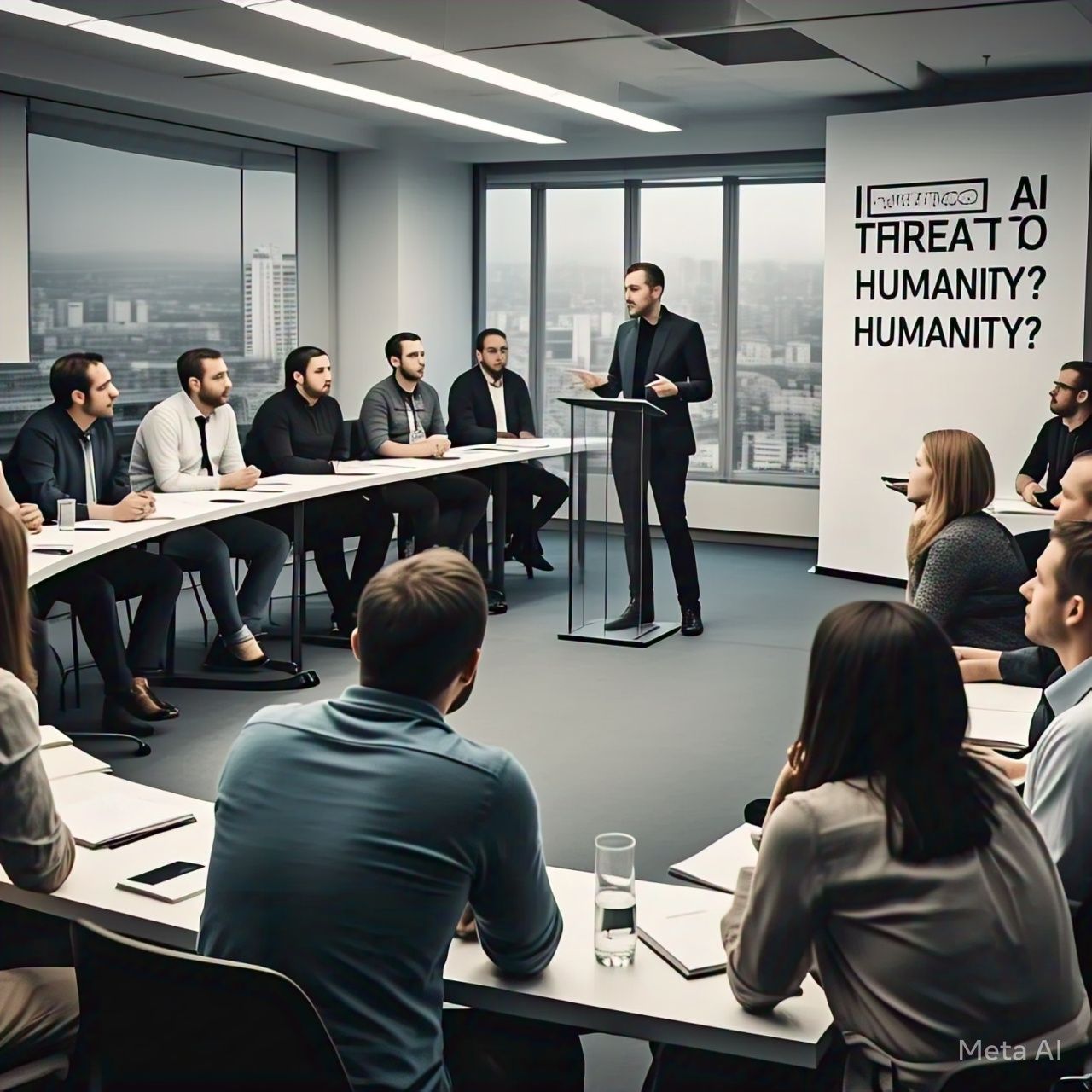Table of Contents
- Introduction
- Understanding Artificial Intelligence
- Potential Threats of AI
- Job Displacement and Economic Disruptions
- AI in Warfare and Autonomous Weapons
- Ethical Concerns and Bias in AI
- Loss of Human Control Over AI Systems
- The Benefits and Positive Impacts of AI
- Advancements in Healthcare
- AI in Climate Change Solutions
- AI-driven Scientific Innovations
- Increased Productivity and Efficiency
- Balancing AI Risks and Benefits
- AI Safety and Ethics Frameworks
- Government and Industry Regulations
- Transparency and Accountability Measures
- Expert Opinions on AI’s Future
- The Role of Global Governance in AI Safety
- The Future of AI: Utopian vs. Dystopian Outcomes
- Conclusion
- FAQs
1. Introduction
Artificial Intelligence (AI) is one of the most transformative technologies of our time, influencing industries, economies, and daily life. However, as AI advances, concerns about its risks and potential existential threats to humanity have emerged. This article explores both sides of the debate: Is AI a threat to humanity, or is it an opportunity for unprecedented progress?
2. Understanding Artificial Intelligence
AI refers to machines and software that can simulate human intelligence, including learning, problem-solving, and decision-making. From self-driving cars to medical diagnostics, AI is reshaping the world, but its rapid development also raises ethical and existential questions.
3. Potential Threats of AI
Job Displacement and Economic Disruptions
AI-powered automation is replacing jobs in industries such as manufacturing, customer service, and logistics. According to a study by the World Economic Forum (WEF), AI could displace over 85 million jobs by 2025, leading to economic inequality and job market shifts.
AI in Warfare and Autonomous Weapons
AI-driven weapons, such as autonomous drones and robotic soldiers, pose significant risks. If left unchecked, AI could lead to unpredictable warfare outcomes, making conflicts harder to control and de-escalate.
Ethical Concerns and Bias in AI
AI systems often inherit biases present in training data, leading to unfair outcomes in hiring, criminal justice, and lending. A study by MIT Media Lab found that facial recognition systems misidentified people of color at disproportionately high rates, raising concerns about discrimination and societal impact.
Loss of Human Control Over AI Systems
Some experts, including Elon Musk and Stephen Hawking, have warned about the possibility of AI surpassing human intelligence and becoming uncontrollable. This scenario, often referred to as Artificial General Intelligence (AGI), could lead to unintended consequences if AI systems prioritize goals misaligned with human values.
4. The Benefits and Positive Impacts of AI
Advancements in Healthcare
AI is revolutionizing healthcare by improving diagnostics, personalizing treatment plans, and accelerating drug discovery. IBM Watson and Google’s DeepMind have demonstrated AI’s potential in identifying diseases like cancer at early stages.
AI in Climate Change Solutions
AI is being used to combat climate change through:
- Predicting extreme weather patterns
- Optimizing energy consumption
- Developing sustainable materials
For example, Microsoft’s AI for Earth initiative focuses on using AI for environmental sustainability.
AI-driven Scientific Innovations
AI contributes to groundbreaking discoveries in fields like astrophysics, genetics, and chemistry. AI algorithms have assisted in discovering new planets and predicting protein structures for drug development.
Increased Productivity and Efficiency
AI enhances productivity across industries by automating repetitive tasks, optimizing supply chains, and assisting in creative processes, allowing humans to focus on higher-value work.
5. Balancing AI Risks and Benefits
AI Safety and Ethics Frameworks
Organizations such as OpenAI and DeepMind advocate for AI safety measures to ensure responsible development. Ethical AI frameworks prioritize fairness, transparency, and accountability.
Government and Industry Regulations
Governments worldwide are drafting AI policies to prevent misuse. The European Union’s AI Act aims to regulate high-risk AI applications, ensuring compliance with ethical guidelines.
Transparency and Accountability Measures
To minimize AI risks, developers must implement:
- Explainability features in AI models
- Regular audits to detect biases
- Ethical AI design principles
6. Expert Opinions on AI’s Future
| Expert | Perspective on AI Threat |
|---|---|
| Elon Musk | Warns about AGI risks and supports AI regulations. |
| Nick Bostrom | Believes AI could surpass human intelligence and pose existential threats. |
| Geoffrey Hinton | Emphasizes AI’s benefits in healthcare but warns about potential misuse. |
| Yann LeCun | Advocates for responsible AI development and dismisses dystopian fears. |
7. The Role of Global Governance in AI Safety
International organizations, including the United Nations and OECD, are working towards global AI safety standards. Collaboration among nations is essential to prevent AI misuse in warfare, finance, and surveillance.
8. The Future of AI: Utopian vs. Dystopian Outcomes
| Scenario | Description |
| Utopian AI Future | AI enhances human life, reduces inequality, and fosters global peace. |
| Dystopian AI Future | AI leads to mass surveillance, job loss, and existential risks. |
| Balanced AI Future | AI is regulated and used responsibly for societal progress. |
9. Conclusion
AI has immense potential to transform society for the better, but it also carries risks that require careful management. While some experts warn about AI surpassing human intelligence, others believe that with proper governance and ethical oversight, AI can be a force for good. The future of AI depends on responsible development, regulations, and global collaboration.
10. FAQs
Q1: Can AI become more intelligent than humans?
AI has not yet reached the level of Artificial General Intelligence (AGI), but researchers are actively exploring its potential.
Q2: Will AI take over all jobs?
While AI will automate some jobs, it will also create new opportunities in AI-related fields and human-AI collaboration roles.
Q3: How can AI be made safer?
AI safety can be ensured through transparency, ethical AI development, regulatory policies, and ongoing monitoring of AI systems.
Q4: Is AI inherently biased?
AI itself is not biased, but it can inherit biases from the data it is trained on. Addressing bias requires diverse datasets and fairness algorithms.
Q5: Should AI be regulated?
Yes, AI regulations are essential to prevent misuse, ensure fairness, and protect human rights.
References
- World Economic Forum (2020). The Future of Jobs Report. Retrieved from WEF
- MIT Media Lab (2018). Gender Shades: Intersectional Accuracy Disparities in Commercial Gender Classification. Retrieved from MIT
- European Commission (2023). The AI Act: A European Approach to AI Regulation. Retrieved from EU Digital Strategy
- Nick Bostrom (2014). Superintelligence: Paths, Dangers, Strategies.





